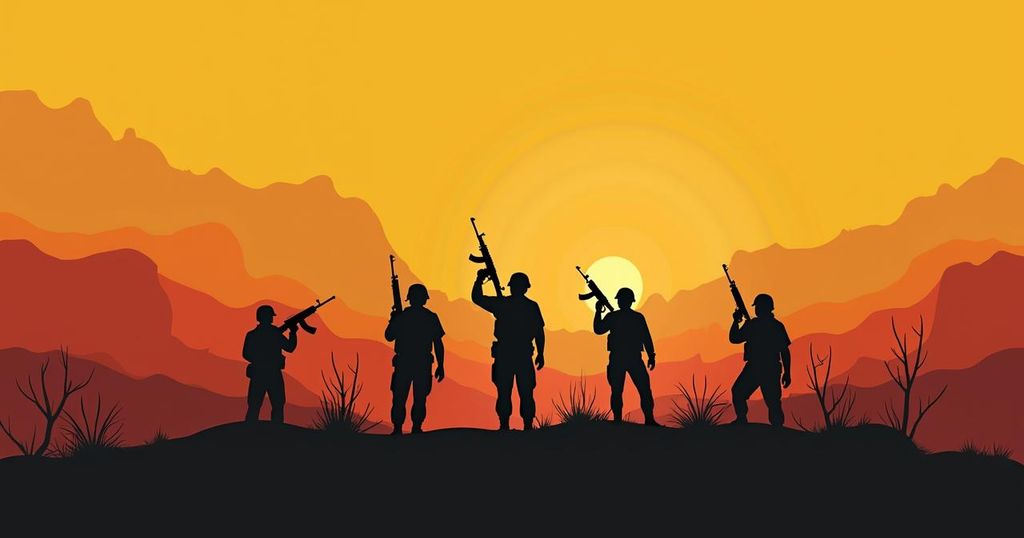Hezbollah is a Lebanese militant group that has escalated confrontations with Israel, characterized by its strong military capabilities and dual role as a political force. Established in 1982 during Lebanon’s civil war, it initially aimed to resist Israeli occupation and now seeks Israel’s destruction. Under the leadership of Hassan Nasrallah, the group has fortified itself as a powerful military and political entity in the region, supported by Iran, with military assets that include approximately 150,000 rockets and missiles, ushering in a new phase of conflict.
The Lebanese militant group Hezbollah has intensified its confrontations with Israel after a prolonged period of exchanging fire, raising concerns of a potential full-scale war. A formidable opponent, Hezbollah is considered more powerful than Hamas due to its substantial military capabilities and its dual roles as a political party and a provider of social services in Lebanon. Hezbollah was established in 1982 against the backdrop of Lebanon’s civil war, initially aiming to resist Israeli occupation in southern Lebanon. The group succeeded in this objective in 2000, following a protracted conflict that ultimately compelled Israel to withdraw its forces. Hezbollah remains committed to its fundamental goal of opposing Israel’s existence. Hezbollah’s leader, Hassan Nasrallah, has made recent claims regarding the group’s upgraded arsenal of weapons. The group has conducted strikes deeper into Israeli territory than ever before, showcasing its drone surveillance capabilities over significant locations such as the port of Haifa. Nasrallah stated that Hezbollah now possesses advancements in weaponry that could change the dynamics of the conflict. Having survived numerous confrontations, the group has evolved to become the dominant military and political force on Israel’s northern border, supported by Iran. Its military structure is reputed to consist of approximately 100,000 fighters and an arsenal estimated to include around 150,000 rockets and missiles capable of hitting any part of Israel. This military might was bolstered by Hezbollah’s involvement in the Syrian civil war, where it has played a crucial role in supporting the Assad regime. The group has, over time, integrated sophisticated weaponry, from anti-tank missiles to explosive drones and surface-to-air missiles, marking a significant escalation in its military capabilities. In the midst of rising tensions, recent attacks attributed to Israel resulted in significant casualties among Hezbollah’s ranks, further complicating the situation. Hassan Nasrallah, who has led Hezbollah since 1992, is a polarizing figure within Lebanon. While he is celebrated for his leadership during significant conflicts against Israel, there exists a contingent within the Lebanese population that opposes his association with Iranian influence. Nasrallah has largely remained in hiding to evade potential assassination by Israeli forces, delivering speeches from undisclosed locations. His leadership and strategic decisions play a critical role in shaping the ongoing Israel-Hezbollah conflict.
Hezbollah, an Iranian-backed militant group, was founded during the turbulent period of Lebanon’s civil war in 1982. Its mission originally focused on expelling Israeli forces from southern Lebanon, a goal it achieved in 2000. Hezbollah has since transitioned to a critical power player in Lebanese politics and military affairs, holding significant influence over the Lebanese government while providing essential social services to its community. The group has developed its military capabilities over the years, emerging as the most substantial paramilitary force in the Arab world. The escalating conflicts with Israel underscore the ongoing tensions permeating the region, particularly as the group continues to receive support from Iran and employs advanced weaponry, including drones and precision missiles, in its operations. Hezbollah’s dynamic—not only as a militant group but also as a political entity—fuels ongoing debates regarding its role in Lebanon and the broader Middle Eastern geopolitical landscape, ultimately shaping interactions with Israel.
In summary, Hezbollah’s emergence as a powerful military and political entity in Lebanon has been marked by its ability to engage in direct confrontations with Israel and expand its arsenal significantly. Under the leadership of Hassan Nasrallah, the group has navigated the complicated landscape of Lebanese politics while also maintaining a critical military role in conflicts beyond Lebanon, particularly in Syria. As tensions rise between Hezbollah and Israel, the potential for an extended conflict remains a pressing concern, particularly given Hezbollah’s substantial military capabilities and strategic partnerships.
Original Source: www.pbs.org






